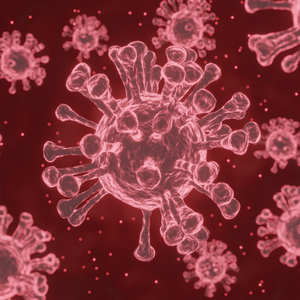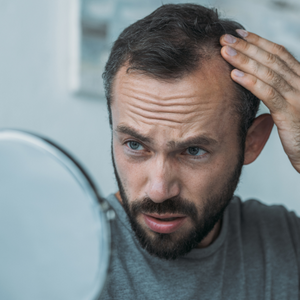Post COVID Hair Fall: What is it all about?

In case you’ve asked yourself recently, “Why have I started losing so much hair after COVID?”, you are not alone. Many patients have been reporting increased hair loss after a COVID infection. It is a known fact that one kind of hair loss, telogen effluvium is exacerbated by stress and it is usually 2-4 months after an event of high stress that the hair loss starts. The question then arises, is it just stress related hair loss or is there something more to it? Does it alter the line of treatment and the potential outcomes?
Let’s cut the chase and get into the currently accepted science. Yes, it is a case of telogen effluvium that leads to hair loss after COVID 19. Does the virus have a direct effect on hair follicles? It is being researched and we do not as yet know the correct answer. The research however, is expected to shed some more light on the fact.

During COVID, it is almost inevitable to go through either fever or a lot of stress and in a majority of cases, both. High fever and stress are both triggers for telogen effluvium.
In this condition, you might see quite severe hair fall that can even come out as clumps after a shower. To be precise, this isn’t really hair loss but and increased amount of hair shedding. Human hair goes through certain phases of growth. Of these, the last phase is the shedding phase. High fever and stress push a larger number of follicles into the shedding phase. This is what you potentially see as large clumps of hair falling off.

In case you do see this form of post COVID hair fall, you should not be worried. The normal recourse to telogen effluvium is that your hair line returns to normal growth within a time frame of 6 to 9 months. This information should help you become a lot more comfortable with the condition!
The next question that comes to most patients’ minds is, “How can I be sure that this hair loss is telogen effluvium?”. That question is not too tough to respond to. You can be fairly sure that you have the normal form of post COVID hair fall in case:
a) The hair loss is occurring within the expected time frame, that is around 2-3 months after recovery.
b) There are no other associated symptoms with the increased hair fall. (Such as redness, itching etc.)
In case you are still not sure about the cause for the hair loss, you should definitely meet the specialist doctor responsible for hair health, your dermatologist.
Are there any special treatments that you should look at? This again depends on your dermatologists’ advice. In case the hair loss is too severe or not reversing naturally you can look at medications and treatments that help with hair loss.






